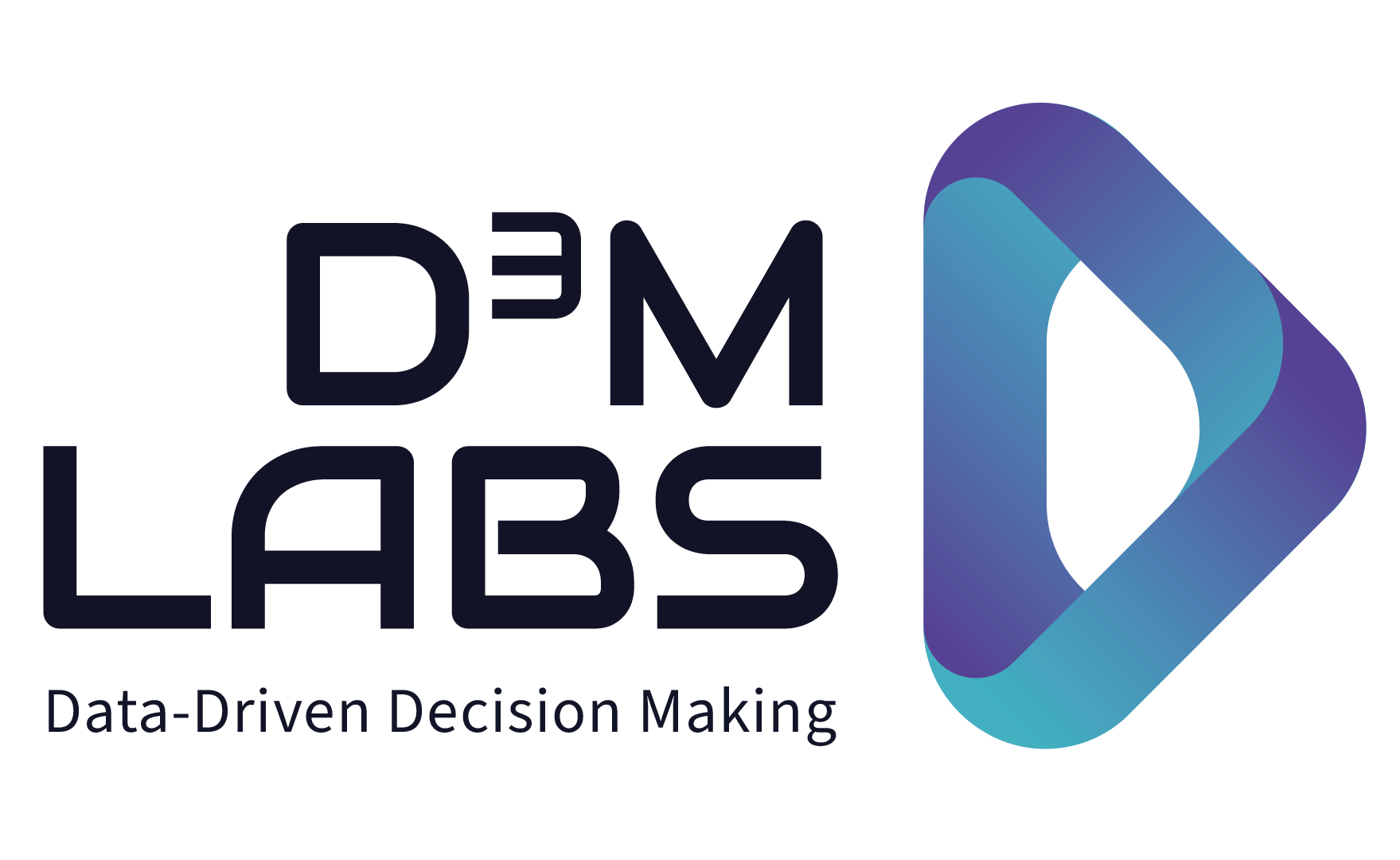How did you get into marketing and then Customer Relationship Management (CRM)?
I haven’t ever made the active decision to work in marketing and CRM. It’s just where I ended up. During the 2008 financial crisis, there was a downturn in the economy. I took an admin job in a local engineering company in Northampton, England. The marketing manager left, and they let me give her role a try. I then did my masters in the History of International Relations at London School of Economics. When I graduated, I took a marketing and communication role at the British Postal Museum.
Each time I changed roles, I moved a bit further away from marketing to the technical and data side. I went from a marketing communications role, to a web editor role, to campaign marketing with a focus on CRM, to CRM development, which also included master data management and analysis.
What does a CRM Manager do?
It depends on the company.
CRM sits in different teams depending on what company you are in. I’ve had it in marketing, growth and tech. The idea of a CRM manager is more what email marketing managers used to be, focused on customer communications and marketing campaigns. There are now so many channels that it has become more omni-channel. CRM now includes channels such as WhatsApp, Social Media. Running campaigns and managing communication in a data-driven way has also become important.
For example, if I sent an email 2 days ago and the email was not opened, when should I send another email? Should segmentation? What type? CRM uses data to do more targeted activities
How has CRM evolved and become more technical?
CRM tech and CRM development are two growing fields.
CRM tech does more sophisticated automation. For example, automating workflows around lifecycle processes, automating repetitive tasks around data entry and user property changes. You can add trigger events.
CRM development is focused on managing integrations of CRM software into other tools in the company’s stack. CRM developers often use code to customize the integration to suit the company’s needs. Integration into calendar functions is one example that happens often.
Why is CRM an important function in a company’s data-driven journey?
Managing the CRM system so that the data ingested and created is reliable and of usable quality is important as well. For example, a form should have dropdown menus as often as possible. There are six ways to spell Philadelphia, for example. A free text field would result in many ways to spell that word, whereas a drop down menu would output clean data.
Then there are data science teams performing machine learning and data analysts performing deep dives based on the data. Customizing the system is important to make sure the data outputted by the CRM system works for the company and is of acceptable quality for the data team.
How did you interface with the data teams as a stakeholder?
I am largely a stakeholder by choice. Many of the things I worked on didn’t need the data team, but I saw opportunities and proactively reached out to the data team.
Sometimes the CRM team needs a segment or a list for a particular campaign and a particular analysis and will reach out. However, they can also pull the data themselves. I have worked with the ingestion pipeline to see that the necessary data is being pulled through, that the ingestion is working.
Increasingly, I have been a stakeholder on machine learning projects, looking at the quality of the data. The data team has all the data. However, the data teams don’t know what fields are used for or what the quality is. There is an advisory opportunity in both directions, stakeholders and data teams, in projects where insight is needed rather than just querying the data.
Why is it hard for data to get out of this service-desk way of working that a lot of teams fall into?
I enjoy data, so I am quite happy to look into how to work with it. However, I’ve seen a lot that people don’t want to look into something themselves, but send off a request.
Part of the impulse surrounding sending ad hoc requests is that people are scared of data. “I don’t know how to get the information I need.”
What can data teams and data leaders do to enable themselves to be used more strategically?
Increasing data literacy to help people find things on their own is important.. Tableau has been helpful so that people can get a quick, topline view of key metrics.
Self-service is great, but it needs to be done alongside a strong data training program. Give people the skills that they need to work more independently. Often you have data teams who work really hard to build a self-service setup that nobody uses.
What type of work do you foresee as remaining with the data team, even in a company with well functioning self-service analytics?
If a bit more granular insights are needed or people don’t have access to certain data sets, there will always be a need for the data team to support them.
Having data analysts and data scientists come up with more in-depth analysis is valuable. Statistical analysis, modeling are areas where there will always be a need.
What can data teams and individual data professionals do to improve the relationship with business stakeholders?
The relationship goes both ways.
Data professionals should know that they can come to us too.
A lot of data teams are used to working as a service function and don’t reach out to other teams for things that can be helpful to them. Sometimes the CRM team can fix a data issue rather quickly.
If they are finding there are data quality issues, reliability issues, if there is something with the pipeline. They don’t have to deal with it themselves.They can come to the CRM team for help.
Learn about the stakeholders
Get some basic knowledge of how CRM works and how it is connected to the DWH. You can then understand what might be the problem when things are not working as you would expect. Ask more of people.
People who work in CRM are generally pretty data literate and have their own reports. Other business functions might not be as data literate.
Advice to business stakeholders?
Pretty much the same as above.
Don’t just use data teams as a service desk.
Go to them with the problem you are trying to solve. The data team has a lot of knowledge.By consulting rather than telling you can find more insight.
Trust data teams a bit more.
I have heard “I don’t trust the data” so many times. But why don’t you trust it?
Give feedback. Then the data team can make the data more trustworthy. People don’t want to make the data teams upset. However, iterating and changing things is part of the job.
What got you so interested in data that you want to move into the data domain?
Finding out the reasons for things. Why did this happen? What are the causes? Trying see how a problem could be solved, why something happened. Digging in a bit. Looking into and saying “the reason something has happened is because of this.” Seeing patterns to explain things and seeing what we expect to see going forward.
I liked playing with excel and taught myself Python, because it was easier to look through data deeply using Python. Showing a visualization tells a story.
The curiosity as to why things happened in the past is partially linked to my degree in History of International Relations. With data I am looking into why things happened with numbers, accounts. One wouldn’t think of that commonality between an arts degree and tech, but it goes back to a curiosity about why things happen.
Why don’t you think more people with Arts degrees go into data?
People with arts degrees are afraid of maths often, because they have been told they were bad at math. People with Arts degrees often can work with data, but they have had narratives about them being bad at math put into their heads and the confidence is not there.
Can you share some secrets of your success?
Talk to people. Get to know people in different departments. Take the opportunity to learn things. If there is something that is interesting, take a look at it, give it a try.
If you don’t know how to do them, try to teach yourself. If you have a good connection with people on another team, ask them. Don’t be afraid to fail. Everybody has a failure story. The important part is to own up to mistakes so that they can be fixed and learn from them. Failure is a great way to learn. The memory of how not to do something sticks with you more than all the things you did right.
Who is Sarah Carr?

Sarah is a recovering Marketer who has gone on to become a CRM systems nerd, but don’t ask her about Salesforce! Aside from CRM she also works on data governance, data quality, and privacy and security requirements, basically the “boring” things no one else wants to look at, but she quite enjoys it.
When not playing around with computers she can be found at her sewing machine or craft table making anything from jewelry to adding pockets to dresses, usually while listening to Dungeons and Dragons, or social impact podcasts.
Other Blogs in D3M Labs Series „Contextualizing our world with data„
Part 1, Advertising: Why creatives in advertising should embrace data science and data mining – an interview with Les Guessing.
Part 3, Public Relations: On the communication front with the Ukrainian PR army – an interview with Liuka Lobarieva.
Part 4, Journalism: Solving the experimentation dilemma and growing the New York Times- an interview with Shane Murray.
Related links
The prevelance of AI and the importance of engaging in dialogue – A blog by Varsh Anilkumar
Beyond AI, the realities of operationalizing AI – A podcast interview with Elizabeth Press
Why the public needs to know more about AI – An interview with Varsh Anilkumar
What is the future of AI adoption?
Check out other D3M Labs Series- In depth look at specific topics that spans multiples interviews and posts
How to manage a data science product Deutsch
Data science is moving from R&D into products – both online and off. Managing data products requires evolution from both traditional software and hardware development.
The future of the analyst
Is the role of the analyst endangered? What is the future of the most visible role in analytics, and the one responsible for delivering the insight? What is the future of the analyst?

